Jeffrey W. Schneider is the co-founder and principal of The Lead PR. Prior to co-founding the public relations firm alongside Brenner Thompson in 2014, Mr. Schneider worked as a senior executive at ABC News for fourteen years. He began his career in New York State government, before transitioning to the media world and taking on roles at the William Morris Agency, Hachette Filipacchi Magazines, and Rubenstein Associates.
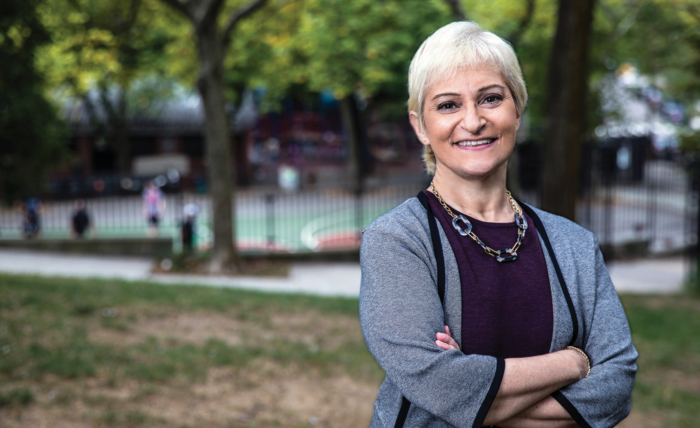
Lynn Schulman
Member of the Lesbian, Gay, Bisexual, Transgender, Queer Caucus, New York City Council

Lynn Schulman is the New York City councilmember for District 29. She currently serves as a member of the Lesbian, Gay, Bisexual, Transgender, Queer Caucus, building on her longtime experience as an LGBTQ advocate. Prior to being elected to the New York City Council, Lynn Schulmann served as vice-chair on Community Board 6 for over two decades. She is a former member of the 112th Precinct Community Council, the Board of Directors of the Forest Hills Chamber of Commerce, and an appointed member of the Community Education Council for District 28.
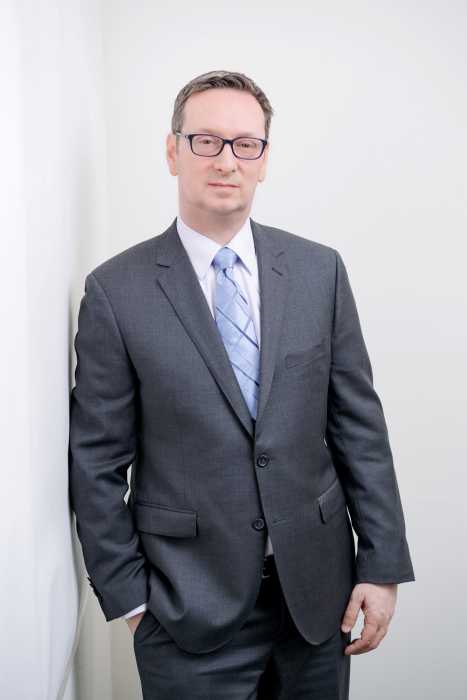
Jeff Simmons
Executive Vice President, Anat Gerstein Inc.

Throughout his career, including in his current role as executive vice president at Anat Gerstein, Jeff Simmons (he/him) has sought to ensure that LGBTQIA+ voices are consistently heard. As a journalist, he had led NY1’s Pride Month coverage. Currently, Jeff regularly addresses issues that affect the LGBTQIA+ communities on his two radio shows on WBAI 99.5 FM, and leads the station’s annual Pride Month special. As a communications consultant, Jeff works with nonprofits, such as Alliance for Positive Change and The Partnership To End Homelessness, that engage members of the LGBTQIA+ communities in their programs and services.
What is your favorite Pride month event or celebration?
Queens Pride (though I could not attend this year due to hosting a 3-hour Pride Month special on WBAI!)
What LGBTQ+ icons or activists have inspired you?
Urvashi Vaid, the former executive director of National Gay and Lesbian Task Force (now known as the National LGBTQ Task Force), who was a staunch supporter of equality and advocated for a number of causes that support women, immigration, healthcare and social justice.
What can people and corporations do to support the LGBTQ+ community year-round, not just during Pride Month?
There is not any single answer. People and companies need to find the best approach for them — where they feel they can have the biggest impact. That can be through donations, volunteering, mentoring, providing pro-bono services, and serving as allies. We are at a pivotal point in our country’s history, faced with legislative measures that would scale back our rights, and so it’s crucial that advocacy efforts to combat these, and support our LGBTQIA+ communities, are ongoing, and not just undertaken during a brief period.
How can businesses create more inclusive environments for their employees and patrons?
Identities are complex, and businesses need to ensure that they recognize this; that they end any policies and practices that are not gender-affirming and that allow discrimination and bias to occur; that they embrace diversity and create environments that provide all voices with equal levels of respect. Employers need to create safe spaces for all — and that includes employees and patrons alike.
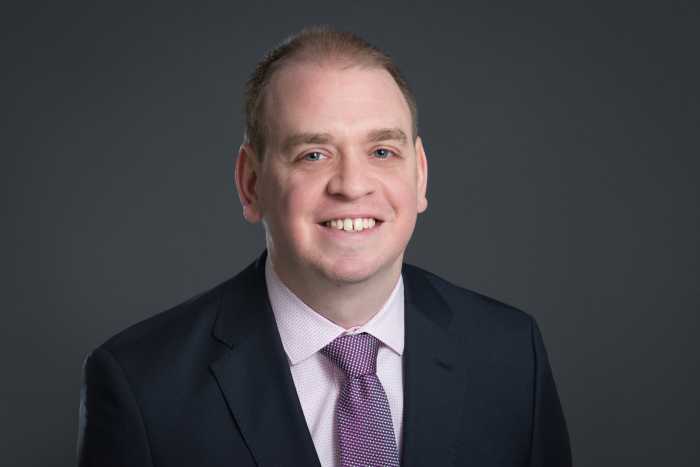
Matthew Skinner
Executive Director, The Richard C. Failla LGBTQ Commission of the New York Courts

Matthew Skinner (he/him) is the executive director of The Richard C. Failla LGBTQ Commission of the New York State Courts, where he works closely with senior court system leadership in efforts to promote equal participation in and access to the courts and legal profession by all persons regardless of sexual orientation, gender identity, or gender expression. Previously, he led The LGBT Bar Association and Foundation of Greater New York (LeGaL), litigated at Proskauer Rose LLP, and clerked for the Honorable Richard K. Eaton at the U.S. Court of International Trade.
What is your favorite Pride Month event or celebration?
Earlier this month, while not intended to be a Pride event, I attended a reception after an investiture for a new judge on the U.S. Court of Appeals for the Second Circuit. All three of the current openly gay and lesbian judges that sit on the Southern District of New York and Second Circuit benches (Judges Paul Oetken, Beth Robinson, and Alison Nathan) were there. It was such a joyous occasion to see them all together in a relaxed setting. In the past year, Judges Robinson and Nathan became the first lesbians ever appointed to a federal appellate bench.
What LGBTQ+ icons or activists have inspired you?
Judges Richard C. Failla, Deborah A. Batts, and Paul G. Feinman are three of the trailblazers in the New York courts that left behind an enormous legacy of, among many other things, moving representation for the LGBTQ community on the bench a huge step forward. Tragically, they all left us much too soon. But others coming behind them have had an easier path because of what they accomplished.
What can people and corporations do to support the LGBTQ+ community year-round, not just during Pride Month?
Distressingly, there is a lot happening in this country right now that threatens LGBTQ equality. We need allies from all walks of life and every industry to step up, help us raise the alarm, and push back against these developments. Authentic allyship is much more than adding rainbows to your marketing one month of the year. Real allies are there when the going gets tough.
How can businesses create more inclusive environments for their employees and patrons?
Hire more LGBTQ people, including and especially people of color and TGNC folks. Once they are part of your organization, give them opportunities to excel and move up the ladder. They will make changes on the inside that improve the environment. Other LGBTQ people will notice, and the organization will become known as a genuine engine of LGBTQ advancement.
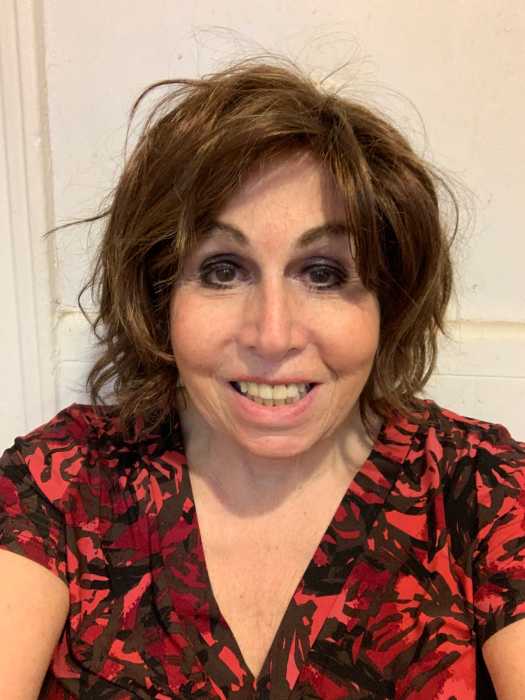
Melissa Sklarz
District Leader, Queens Democratic Party

Melissa Sklarz (she/her) is one of two trans elected officials in New York, being district leader in the 30th Assembly District in Queens. She became the first trans person elected to a Democratic Party post when she ran as judicial delegate in 1999. She has been a delegate to the Democratic Convention in both 2016 and 2020 and was the first trans member of the Electoral College in 2016. She has spent decades fighting for trans rights in the city and the state, culminating with the Gender Expression Non-Discrimination Act (GENDA) signed into law by Governor Cuomo in 2018.
What is your favorite Pride Month event or celebration?
Trans March in Jackson Heights in July.
Queens Pride in early June.
What LGBTQ+ icons or activists have inspired you?
Harvey Milk, Tom Duane, Riki Ann Wilkins, Miss Major, Elisa Crespo.
What can people and corporations do to support the LGBTQ+ community year-round, not just during Pride Month?
The battle in New York is less about sexual orientation and gender identity and more about racial justice. Housing, food instability, police reform, and immigration rights are the issues that I follow and support, and affect the quality of life for all New Yorkers.
How can businesses create more inclusive environments for their employees and patrons?
Our queer cultures change all the time. Businesses must make the effort to support New Yorkers in the journeys for self discovery and authenticity. The battle of young people to survive may look different than our struggles, but are still relevant to life today.
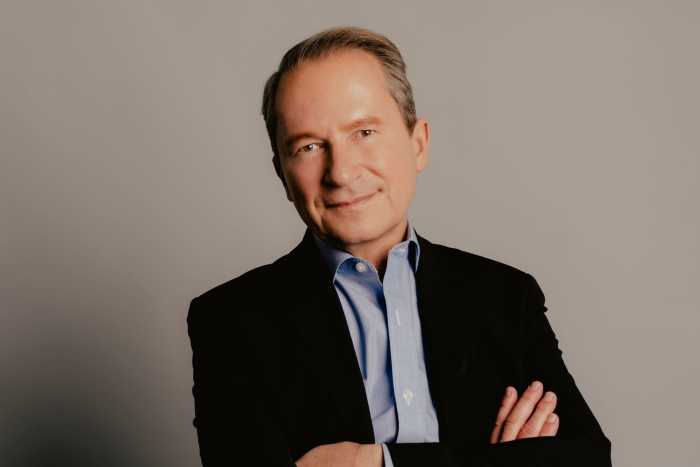
Richard Socarides
Executive Vice President and Chief Communications Officer, GLG Insights

Richard Socarides (he/him) is executive vice president and chief communications officer at GLG. He also oversees GLG’s award-winning Social Impact Program and serves as the executive sponsor of GLG’s LGBTQIA+ Diversity Network. Richard previously served as White House special assistant and senior adviser to President Bill Clinton, and held senior roles at New Line Cinema, Time Warner, and AOL, and as an attorney. Richard has been a writer for The New Yorker and an on-air commentator for CNN.
What is your favorite Pride Month event or celebration?
NYC’s Sunday Pride March, which serves as a testament to the determination, dedication, and bravery of the LGBTQIA+ community. Having grown up in Manhattan — and lived through some of the more recent civil rights battles that the March honors, from the AIDS epidemic to the fight for marriage — I feel a deep appreciation for the Pride March. It’s an inclusive and unwavering bastion of our community I’m always proud to participate in. (I was particularly proud to march with Hillary Clinton when she was First Lady, and right after the passage of marriage equality in New York State.)
What LGBTQ+ icons or activists have inspired you?
Harvey Milk, for sure, the former San Francisco Supervisor and one of the first openly LGBTQIA+ people to be elected to public office — among many others — for his bravery. In the face of profound opposition, he courageously used his platform to champion the LGBTQIA+ community, but also fought for many others, including women and people of color. I’m proud to say his work helped inform my own — which is rooted in the fundamental belief that LGBTQIA+ rights are human rights, and that every human deserves an equal opportunity to succeed and find joy.
What can people and corporations do to support the LGBTQ+ community year-round, not just during Pride Month?
It’s important that businesses not only express their support of the LGBTQIA+ community, but also create spaces within their organizations for employees to build connections, such as employee resource groups. Pride and heritage months are opportunities to affirm employees of underrepresented groups — but by encouraging and enabling employees to connect both within and beyond the scope of their work, businesses empower their people to support one another year-round.
How can businesses create more inclusive environments for their employees and patrons?
Embrace the fact that there is more that connects us than that divides us, and lead by example — including by supporting and investing in employees. Companies can and should hear the voices and perspectives of all their people. In the case of global companies, like GLG, that means creating opportunities for employees around the world to share their unique experiences through employee groups.
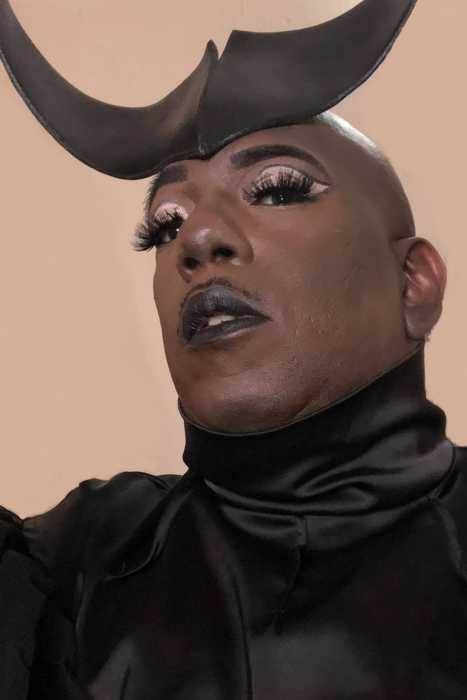
Lee Soulja
Founder and Executive Director, New York City Center for Black Pride

Lee Soulja (he/him) is a celebrated visual performance artist, actor, and dancer. He is the founder of the NYC Center for Black Pride, which produces New York City’s annual Black Pride celebration, and is a founding member of Pride and Power, NYC Black and Latino LGBTQ Coalition, and PANYC. He has also sat on the LGBT Task force for the Manhattan Borough President, the NYC Public Advocate and the Police Commissioner. He’s received several honors for community service, including those from former Governor Coumo and New York City Mayors Michael Bloomberg and Bill De Blasio.
What is your favorite Pride Month event or celebration?
I have two favorite Pride Month events. The first is the PRIDE FOR YOUTH event in Long Island at Hofstra University. Hosting the show for the young kids is the highlight of my year!
The second is The Latex Ball. It is the grandest event for the house and ballroom community!
What LGBTQ+ icons or activists have inspired you?
I was most inspired by Storme Delarverie and Marsha P. Johnson. They were both the catalyst that ignited the Stonewall uprising. However, to me, they were also strong community advocates for change and amazing performers. Storme was a pioneering Drag King and Marsha was an all-around entertainer, but noted as a singer and comedian.
What can people and corporations do to support the LGBTQ+ community year-round, not just during Pride Month?
It would be wonderful to see more diversity in representation in advertising, on TV shows, and in movies. It would also be great to see more corporations give support to LGBTQ nonprofit organizations. Nonprofits like mine create safe spaces and programming to support the community all year round.
How can businesses create more inclusive environments for their employees and patrons?
I think that having diversity trainings at businesses is a wonderful initiative. It’s also great to enact an Equal Opportunity Employment policy that can make staffing diverse as well. I think that people are comforted and happy when they patronize a business that employs people that reflect and relate to them.
Kiara St. James
Executive Director, New York Transgender Advocacy Group
Kiara St. James (she/her) is the executive director and founder of the New York Transgender Advocacy Group. St. James has been an active advocate, public speaker, and community activist for over 20 years. She has been instrumental in numerous policy changes, including discriminatory shelter practices and the passage of GENDA in 2019. She also serves on the Black Women Health Initiative Board and the oard of the soon to be launched Monica Roberts Resource Center in Houston, Texas.
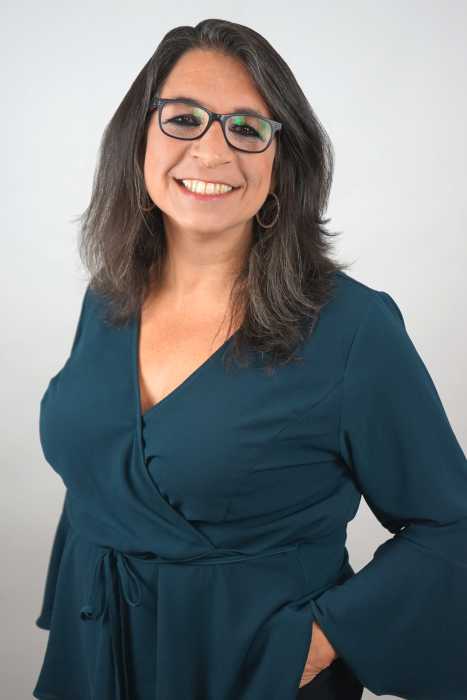
Wendy Stark
Executive Director, Callen-Lorde Community Health Center

Wendy Stark (she/her) has dedicated her life to health equity and justice. After starting her career in reproductive health, she began working at Callen-Lorde with a mission to achieve health equity for LGBTQ communities and people living with HIV/AIDS in 1994. Under her leadership, Callen-Lorde has increased patient capacity by over 30% with new sites in the Bronx and Brooklyn, began a formal research, education, and public policy program, and recently launched The Keith Haring Postgraduate Nurse Practitioner Fellowship in LGBTQ+ Health — the first of its kind in the nation.
What is your favorite Pride Month event or celebration?
Brooklyn Pride — I love that it’s community oriented and in my own home borough.
What LGBTQ+ icons or activists have inspired you?
One of our namesakes, Audre Lorde.
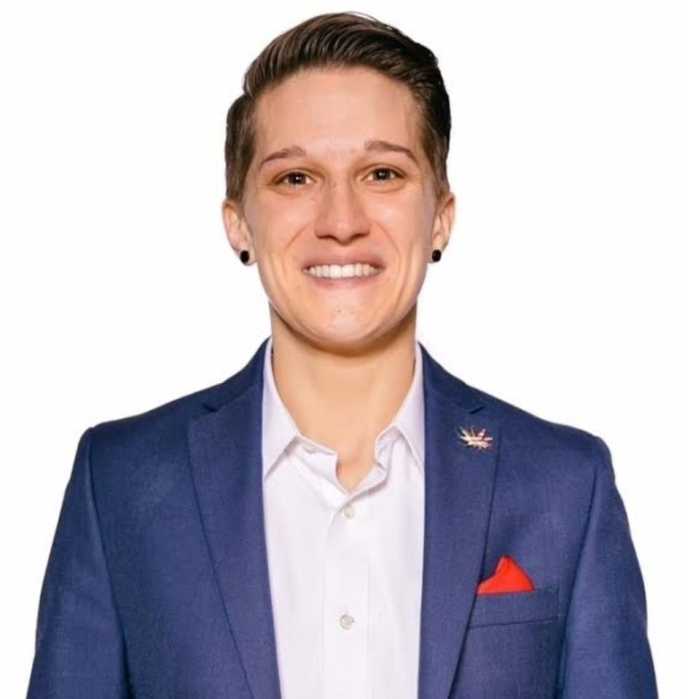
Sarah Stenuf
Founder and CEO, Ananda Farms and Founder and Director, Veteran’s Ananda Inc.

Sarah Stenuf (she/her) is the CEO of Ananda Farms, a licensed cannabis and hemp company. It is a New York State Service-Disabled Veteran-Owned Business, a seed-to-branded-product company certified by the National LGBT Chamber of Commerce. Stenuf served four years and one deployment in the U.S. Army, as an Apache Crew Chief, prior to being medically retired for epilepsy and PTSD. Her mission is to educate others about post-service issues. She founded Veteran’s Ananda, Inc., a 501(c)(3) that provides free care, support, and rehabilitation to our nation’s veterans. Stenuf lives in the town of Granby, New York, with her wife Jennifer and son Gracen.
What is your favorite Pride Month event or celebration?
My favorite Pride Month events are the parade and rallies that gather everyone together to celebrate our legal rights and to remember those in the LGTBQ+ community who have fought for our rights and ability to love freely. It’s a time where we pay extra recognition to the impact LGBT people have had in the world to create positive and hopeful change.
What LGBTQ+ icons or activists have inspired you?
Over the years I have met some truly inspiring LGBTQ+ people. But the LGBTQ+ individuals who inspired me the most are the ones I grew up with: my friends growing up, who inspired me and encouraged me to come out. Through their love and support I was able to open up and accept who I am. This motivated me to embrace myself and learn more about the LGBTQ+ community and our history. I learned that our roots go deep, from Stonewall to “Don’t Ask, Don’t Tell,” there are some truly incredible LGBTQ+ individuals who inspired me throughout the years.
What can people and corporations do to support the LGBTQ+ community year-round, not just during Pride Month?
As people, please be an active and vocal LGBTQ ally. Openly showing support goes a long way in our loud and proud community. One way corporations can show support is simply by listening and communicating with employees and others.
Creating open dialogue in judgment-free environments helps to build empathy and trust. We can learn from one another, support each other, and inevitably create an inclusive environment where everyone feels safe and accepted. With that being said, I feel it is imperative for companies to create a diversified team and emphasize their efforts to establish an inclusive environment for employees and patrons.
How can businesses create more inclusive environments for their employees and patrons?
A company’s core values should also reflect their desire for inclusion. A company’s talent acquisition strategy should ensure that their organization is recruiting from a wide variety of sources. This will help to diversify all project teams. Along with hiring a diverse team also comes providing inclusion training, especially for managers. A company’s management staff should be educating themselves on inclusion, ensuring that hiring practices are inclusive. This shows the company’s true desire to diversify and support LGBTQ+ employees.





